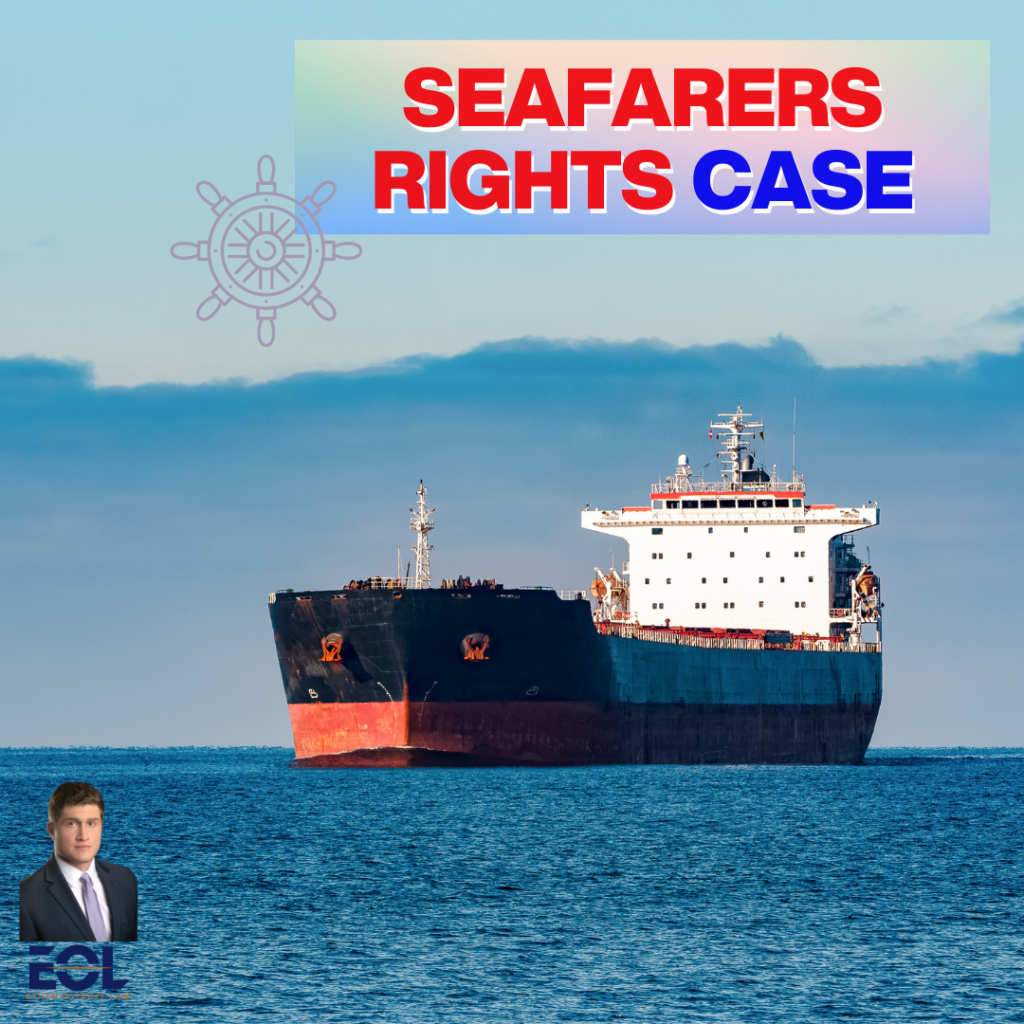A Simple Guide To Filing A Seafarers Accident Lawsuit In 2024
Despite being ranked among the most profitable occupations, jobs at sea are among the most dangerous professions in the world. If you or your loved one was injured or has suffered death while working on sea vessels, including cargo ships, cruise ships, oil rigs, yachts, tug boats, and barges, filing a seafarers accident lawsuit is the best way to get maximum compensation.
What to do in case a seafarers accident happened
First things first – make sure to report it. It has been found that cruise ship, cargo, and recreational boat crew members get involved in seafarer accidents on a routine basis. Unfortunately, as maritime workers fear losing their job or facing reprisal for reporting an accident, mishaps are not always reported.
Even if injuries are reported by seafarers accident lawsuit claims, sometimes, too much time elapses between the injury and the claim, leaving the crewmember with extremely limited options, or no options at all, to recover the damages. In addition, the crew members don’t always receive the medical care or compensation they deserve for shipboard-related injuries. However, they are entitled to seek legal help from their employer.
Seafarers’ rights are complex, as all rights can exist at different levels. They can be overlapping and sometimes conflicting! Therefore, if you have a legal problem, you must seek advice from your union and from experienced seafarers accident lawyers to discuss your specific situation.

International laws
Your contract of employment
- A private contract.
- A collective bargaining agreement that was produced by a trade union or an employers’ association.
- A government-assisted contract, which is a form of contract where the government has taken an active role. This includes the Philippine Overseas Employment Administration (POEA) Contract: Standard Terms and Conditions, a contract that governs the employment of Filipino seafarers aboard ocean-going ships.
Proof required to be eligible for compensation
Maritime laws and the seafarer’s rights international conventions have set in place provide that if there is an incident on board, the following documents need to be completed:
- Log record.
- Incident Investigation Form (as per some Company Procedures).
- Vessel Incident Report (as per Vessel Procedures).
In case of a serious personal injury or death of a crew member, local authorities are taken on board in the nearest port of call.
A seafarer who has sustained a personal injury as a result of an incident (or his/her next of kin) should request a copy of these documents to prove that an incident has indeed occurred on board. It is also vital to keep all medical documents confirming the diagnosis and expenses incurred.
Your rights to seafarer’s compensation
Under the Jones Act, if a seaman gets injured in the course of employment, he can bring a seafarers accident lawsuit against his employer. Generally, all seafarers have rights under maritime laws to:
- Contract benefits.
- Food and shelter.
- Medical care.
- Transportation.
- Wages and tips.
Furthermore, a seaman who becomes ill or injured while in the service of a vessel due to the fault of the seaman’s employer is entitled to get a fair seafarers accident settlement for the lost wages, seaman’s injuries, and loss of earning capacity.
Compensation for loss of life
Here are the typical compensation given to the heirs of deceased seafarer:
- US$ 104,866 will be given to the next of kin.
- US$ 20,974 will be given to each child under 18 years old unless higher compensation is agreed upon.
The shipowner must also meet reasonable burial and body transportation expenses.
In case a seafarer goes missing at sea, the family will get the same amount of compensation as if the said seafarer died on board.
Who are considered seamen
Seafarers accident lawsuit claims encompass the rights of a seaman aboard any type of vessel. Therefore, if you want to be considered as a seaman, you need to have proper navigation of the vessel or contribute to the mission of the vessel.
For instance, entertainers aboard cruise ships are considered seamen because they help in the mission of the vessel (which is to provide cruise vacations). The worker should also spend a significant amount of their time on a vessel, about 35% or more, rather than on land.
Although the work performed might not always be on the water, if a vessel is not involved, it is unlikely that the worker will be considered a seaman. In addition, a non-seaman worker who performs traditional seaman’s work can also be considered a seaman for the purposes of the law.
If you have become ill or have suffered an injury while working on board a vessel, or on land while in the service of a vessel, Ethen Ostroff and his team will help you recover the maximum compensation to which you are entitled under the law. We will help you get access to the top seafarers accident lawyers who have extensive years of experience handling and winning such cases.
What are you waiting for? Contact Ethen Ostroff Law now at 610-510-8883 ( by calling this number, you consent to receive SMS updates from Ethen Ostroff Law) or Submit Form to get free consultation.


